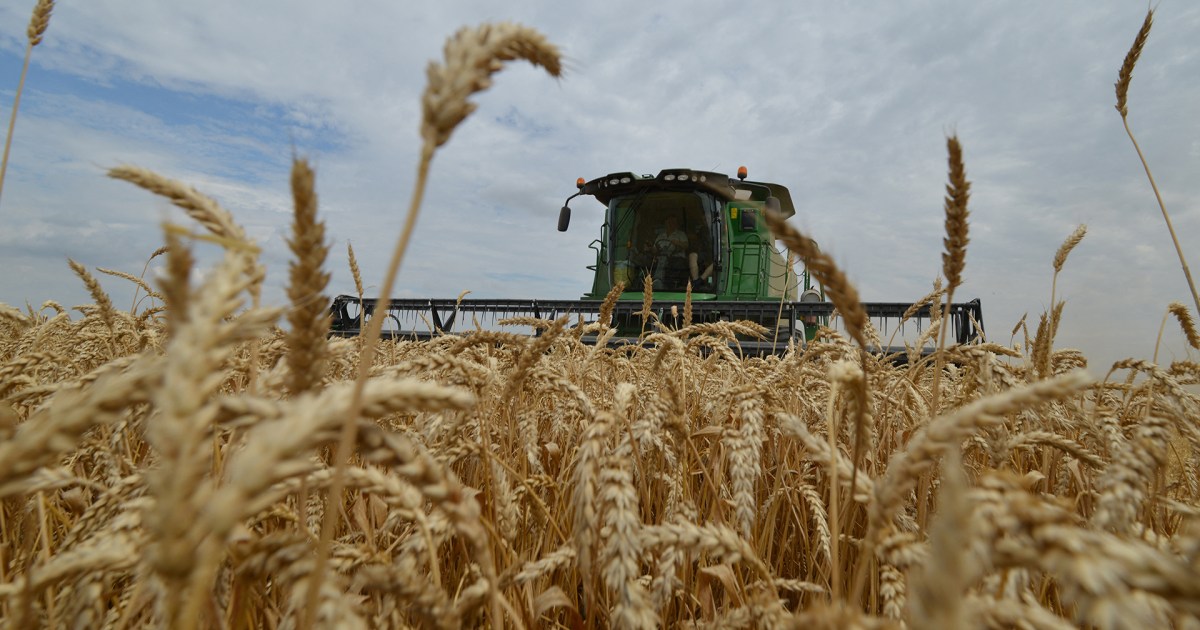The Valdai Club website says that the tightening of Western sanctions against Russia - which, according to US President Joe Biden, aims to deprive it of advanced technologies and weaken the economy - makes partnership with the Arab world promising for Moscow.
And the Russian website explains in
a report
that despite the difficult situation in light of the unprecedented Western sanctions, this does not mean the absence of prospects for increasing exports to Arab countries, whether in high-tech or traditional military products, which include air defense, electronic intelligence, light and small arms and armored vehicles, as Moscow competes with China also and not only with the West.
He adds that before its invasion of Ukraine, Russia had established relations with a number of Middle Eastern countries that were affected by Western sanctions, such as Iran and Sudan, or in a state of armed conflict such as Yemen, Syria and Libya, or an economic crisis such as Lebanon, or an internal political conflict such as Iraq.
Russia has what it offers to its Arab partners for following an approach that takes into account the level of social, economic and technological development, in addition to ambitions and the ability to repay debts.
The report reviewed prospects for cooperation in a number of areas:
Military Products
According to the Stockholm Peace Research Institute, Russia's military exports to the Middle East increased by 64% between 2016 and 2020 compared to the period between 2011 and 2015.
Washington's pressure on Arab regimes, including those with "special non-NATO allies" status, will surely reappear when their weapons are urgently certified to NATO standards.
Between 2016 and 2020, these supplies represented nearly 49% of Russia's military product exports.
The report indicated that Russian producers are able to cooperate with Arab importers and offer competitive offers compared to the West, starting with a flexible pricing policy and ready supplies of military products, with pre-sales and after-sales preparations, all the way to manufacturing products adapted to local conditions.
He believes that it is in the interests of Algeria and Egypt, for example, to import Russian military products in exchange for the Russian side buying their agricultural and consumer products, provided that the payments are made in national currencies.
Russia has experience dating back to the days of the Soviet Union in dealing with local currencies, when trade was conducted with Finland in rubles, with India in rupees, and with Pakistan in rupees, and the Chinese yuan is now being entered into settlements.
This strategy would expand the Russian presence in the Maghreb in addition to Sudan.
space exploration
Saudi Arabia is considered a major partner in this field, after establishing the Space Committee in 2018 and announcing the allocation of $2.1 billion as part of the ambitious Vision 2030.
The Kingdom is trying to keep pace with the UAE's efforts to explore space, which launched in 2020, for the first time in the Arab world, the "Hope" project to explore Mars.
Russia offers its unique expertise in the field of astronautics, the production of launch vehicles, the launching of satellites, as well as space airports to help Arab countries develop their capabilities in this field, including joint research and development and satellite manufacturing.
Nuclear Energy
The site believes that nuclear energy represents the third area of cooperation between Russia and the Arab countries, after the Russian company "Rosatom" had previously participated in the implementation of the El Dabaa nuclear power plant project in Egypt.
Much like competition in the arms market, competition in the nuclear market requires the adoption of flexible algorithms for cooperation.
The US company "Westinghouse Electric" and the French group "Arava" are the main competitors of Rosatom in the region.
Information Technology
Reducing the flow of Russian specialists due to the spread of the Corona virus pandemic, and due to the fear of sanctions, will not constitute an obstacle to the supply of Russian IT products abroad, in light of the continued interest of Arab partners in Moscow’s achievements in cryptography and computer security, including addressing hacker attacks. .
The same is true for other industries with the need to develop new cooperation plans, including offset contracts or joint ventures with third countries such as India as a leader in the IT market.
Food security
In cooperation with the Ministry of Industry and Trade, the Ministry of Agriculture, the Ministry of Economic Development of Russia and Russian academic centers, the issue of increasing Moscow’s role in ensuring food security should be considered in a number of countries in the Middle East and North Africa, similar to countries that have been living for years on the impact of conflicts and humanitarian crises such as Yemen and Lebanon and Libya, the Palestinian Territories, Syria and Somalia, or countries with high population density such as Egypt, Algeria and Iraq.
Because of the development of the Russian-Ukrainian crisis, the quantities of grain that were exported to these countries decreased.
According to data from Statista, a company specializing in market and consumer data, in 2020, Russia ranked first in the world in exporting wheat, with an amount of exports equivalent to 37.3 million tons, while Ukraine ranked fifth with an amount of exports of about 18.1 million tons.
Metal, wood and medical tourism
Russian exports can be expanded to include rare metals, processed and unprocessed timber, as well as goods that were sold before the imposition of sanctions not under direct contracts but through international exchange platforms.

